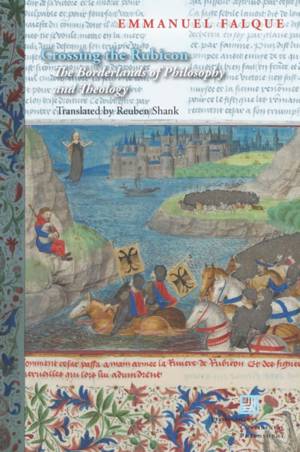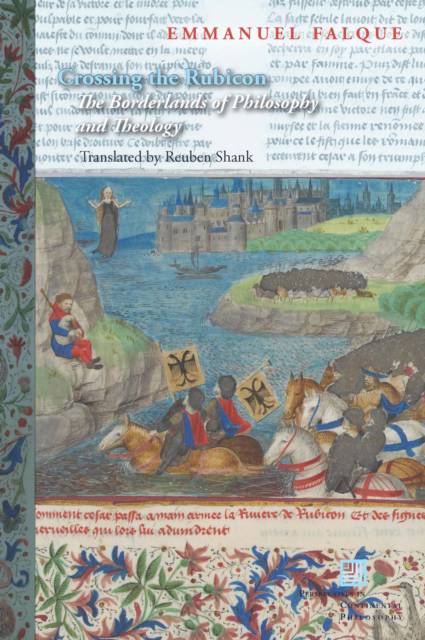
- Afhalen na 1 uur in een winkel met voorraad
- Gratis thuislevering in België vanaf € 30
- Ruim aanbod met 7 miljoen producten
- Afhalen na 1 uur in een winkel met voorraad
- Gratis thuislevering in België vanaf € 30
- Ruim aanbod met 7 miljoen producten
Zoeken
Omschrijving
In France today, philosophy--phenomenology in particular--finds itself in a paradoxical relation to theology. Some debate a "theological turn." Others disavow theological arguments as if such arguments would tarnish their philosophical integrity, while nevertheless carrying out theology in other venues. In Crossing the Rubicon, Emmanuel Falque seeks to end this face-off. Convinced that "the more one theologizes, the better one philosophizes," he proposes a counterblow by theology against phenomenology. Instead of another philosophy of "the threshold" or "the leap"--and through a retrospective and forward-looking examination of his own method--he argues that an encounter between the two disciplines will reveal their mutual fruitfulness and their true distinctive borders. Falque shows that he has made the crossing between philosophy and theology and back again with audacity and perhaps a little recklessness, knowing full well that no one thinks without exposing himself to risk.
Specificaties
Betrokkenen
- Auteur(s):
- Vertaler(s):
- Uitgeverij:
Inhoud
- Aantal bladzijden:
- 216
- Taal:
- Engels
- Reeks:
Eigenschappen
- Productcode (EAN):
- 9780823269884
- Verschijningsdatum:
- 1/06/2016
- Uitvoering:
- Paperback
- Formaat:
- Trade paperback (VS)
- Afmetingen:
- 152 mm x 226 mm
- Gewicht:
- 272 g

Alleen bij Standaard Boekhandel
+ 90 punten op je klantenkaart van Standaard Boekhandel
Beoordelingen
We publiceren alleen reviews die voldoen aan de voorwaarden voor reviews. Bekijk onze voorwaarden voor reviews.











